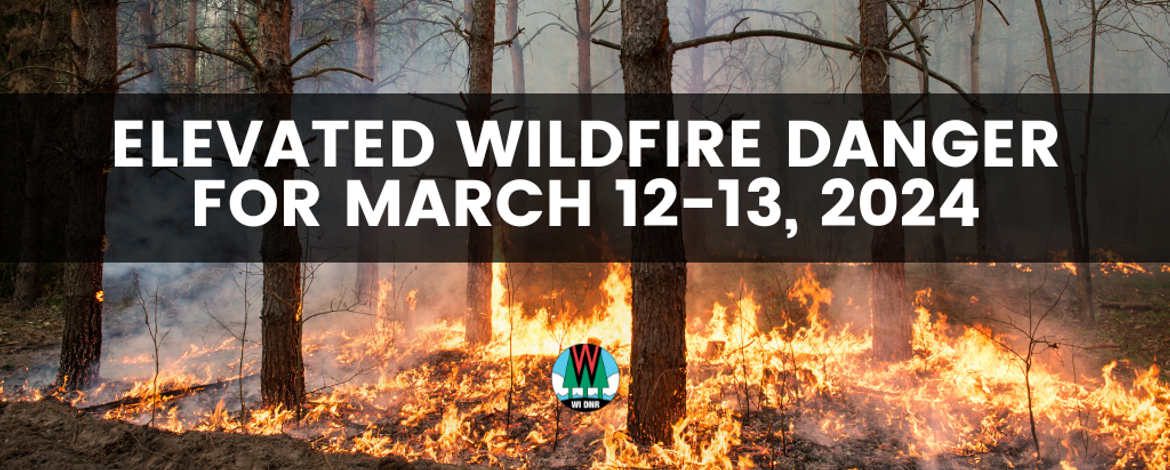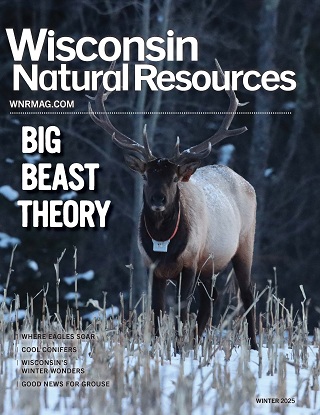Contact: DNR Office of Communications
DNRPress@wisconsin.gov
Elevated Fire Danger Statewide March 12-13
Please Avoid Burning Until Conditions Improve
 Stay vigilant and avoid burning now through Wednesday, March 13, due to elevated fire danger throughout the state.
Photo credit: Wisconsin DNR
Stay vigilant and avoid burning now through Wednesday, March 13, due to elevated fire danger throughout the state.
Photo credit: Wisconsin DNR
MADISON, Wis. – The Wisconsin Department of Natural Resources (DNR) asks the public to avoid burning this week due to elevated fire danger throughout the state.
Warm temperatures, low humidity and breezy conditions are in the forecast for the beginning part of this week. Although parts of the state are predicted to see rain on Wednesday, the precipitation is expected to miss the northern part of Wisconsin.
On windy, dry days, embers from any fire, especially burn piles and campfires, can easily escape control and cause a wildfire if not properly extinguished.
The DNR has already responded to over 50 wildfires across Wisconsin this week alone, bringing the yearly total to 193 fires burning 356 acres. For reference, the DNR had only responded to seven wildfires across Wisconsin at this point last year. The majority of these recent wildfires have been related to debris burning.
If you plan to spend time outdoors this week, the DNR asks you to avoid all outdoor burning, including debris burning and limiting the use of campfires and bonfires. Be sure to discard hot ashes from woodstoves or fireplaces in a metal container until cold. Outdoor enthusiasts should also use caution with any off-road vehicles or equipment that can create a spark and start a fire.
The DNR is also suspending annual burn permits in all DNR protection areas across the state due to current and forecasted conditions. If your property is outside the DNR's jurisdiction, please check with local authorities prior to burning. Check the DNR's website to learn if your property is within the DNR's jurisdiction.
Always check before you burn. Remember – fire danger and burning restrictions change every day.
FIRE SAFETY TIPS
- Report fires early by calling 911.
- Avoid outdoor burning until conditions improve. Burn permits for debris burning are currently suspended in many counties.
- Operate equipment (chainsaws, off-road vehicles, lawnmowers, etc.) early in the morning or late in the day to avoid sparks at peak burn hours.
- Secure dragging trailer chains to avoid creating sparks.
- Do not try to suppress a fire by yourself.
- Never operate drones/unmanned aircraft over or near fires — it endangers the lives of pilots and firefighters and interferes with fire suppression operations.
Check current fire danger, wildfire reports and burning restrictions on the DNR's website.
For a more comprehensive view of current fire activity, visit the DNR's wildfire dashboard.

